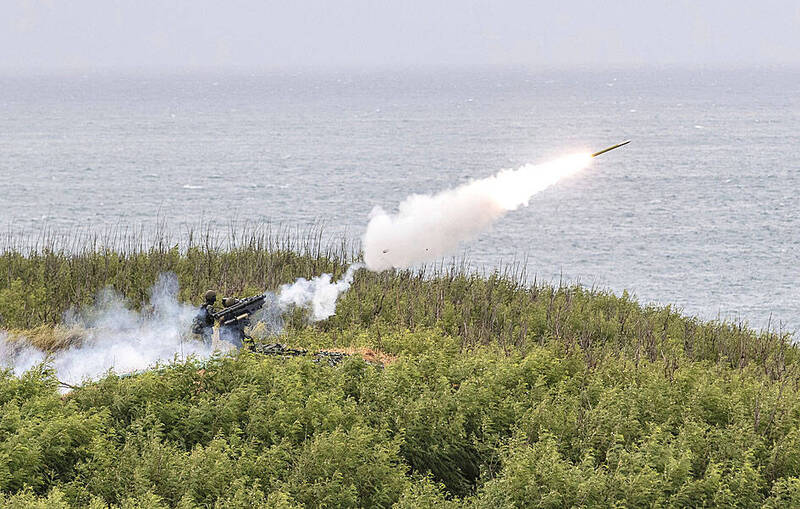Business
Taiwan Seeks Record US$33 Billion for Defense Upgrades Amid Tensions

Taiwan is planning to request a historic allocation of up to US$33 billion to enhance its defense capabilities in response to increasing military pressure from China. The announcement was made by senior lawmaker Wang Ting-yu, a member of the Democratic Progressive Party (DPP), who emphasized the urgency of the funding to fortify the nation against potential threats.
The Ministry of National Defense (MND) is developing a special budget ranging from NT$800 billion to NT$1 trillion, equivalent to approximately US$26.4 billion to US$33.1 billion, intended for defense improvements over a period of seven years. Wang noted that although the precise amount is still under negotiation, it will include arms acquisitions from the United States, Taiwan’s primary arms supplier.
Wang articulated the objectives of the funding initiative, which aims to create a comprehensive defense system. “We want to build a complete defense ecology to defend our country,” he stated. The proposed enhancements encompass the integration of air defense systems, the acquisition of advanced technology to counter small drones, missiles, and rockets, as well as improvements to ammunition production and storage capabilities.
The urgency of these upgrades is underscored by China’s advancements in military technology. Wang highlighted that China is developing fifth-generation fighters and employing stealth technology across various platforms. He emphasized the necessity for Taiwan to invest in superior radar and sensor systems, stating, “If you cannot detect it, all kinds of fire units are useless.”
Negotiations between Taiwan and the US also play a significant role in this funding pursuit. The Taiwanese government, led by President William Lai, is striving to negotiate terms that could reduce tariffs imposed by US President Donald Trump on Taiwanese goods, which currently stand at 20 percent. The proposed defense budget, which aims to increase Taiwan’s defense spending to more than 3 percent of GDP for the next fiscal year, reflects a broader strategy to elevate this figure to 5 percent by 2030.
Wang expressed hope that the special defense budget would positively influence trade negotiations with the US. Should the Cabinet approve the funding proposal, it must still gain approval from the opposition-controlled legislature. Wang urged opposition parties to support the initiative, framing it as vital for Taiwan’s survival.
Chinese Nationalist Party (KMT) Legislator Huang Jen, co-chair of the Foreign Affairs and National Defense Committee, acknowledged the need for discussion regarding the budget if it is presented in the legislature. He remarked, “We understand the enemy threat and pressure from the US, but given limited resources, the key is how to spend money effectively.”
The necessity for robust air defenses has been echoed by experts in the field. Su Tzu-yun, a research fellow at the Institute for National Defense and Security Research, highlighted the growing threats posed by Chinese naval forces, which currently patrol the waters around Taiwan. He noted that Chinese warships have the capacity to launch over 500 cruise missiles and could target Taiwan’s critical military sites within minutes, indicating a pressing need for enhanced defense capabilities.
As Taiwan navigates these complex challenges, the proposed funding marks a significant step towards strengthening its position amid escalating tensions in the region.
-

 Business5 months ago
Business5 months agoKenvue Dismisses CEO Thibaut Mongon as Strategic Review Advances
-

 Lifestyle4 months ago
Lifestyle4 months agoHumanism Camp Engages 250 Youths in Summer Fest 2025
-

 Sports4 months ago
Sports4 months agoDe Minaur Triumphs at Washington Open After Thrilling Comeback
-

 Sports5 months ago
Sports5 months agoTupou and Daugunu Join First Nations Squad for Lions Clash
-

 Top Stories5 months ago
Top Stories5 months agoColombian Senator Miguel Uribe Shows Signs of Recovery After Attack
-

 World5 months ago
World5 months agoASEAN Gears Up for Historic Joint Meeting of Foreign and Economic Ministers
-

 Health4 months ago
Health4 months agoNew Study Challenges Assumptions About Aging and Inflammation
-

 Business5 months ago
Business5 months agoOil Prices Surge Following New EU Sanctions on Russia
-

 Entertainment4 months ago
Entertainment4 months agoDetaşe-Sabah Violin Ensemble Captivates at Gabala Music Festival
-

 Entertainment4 months ago
Entertainment4 months agoBaku Metro Extends Hours for Justin Timberlake Concert
-

 Top Stories5 months ago
Top Stories5 months agoRethinking Singapore’s F&B Regulations Amid Business Closures
-

 Business5 months ago
Business5 months agoU.S. House Approves Stablecoin Bill, Sends to Trump for Signature









